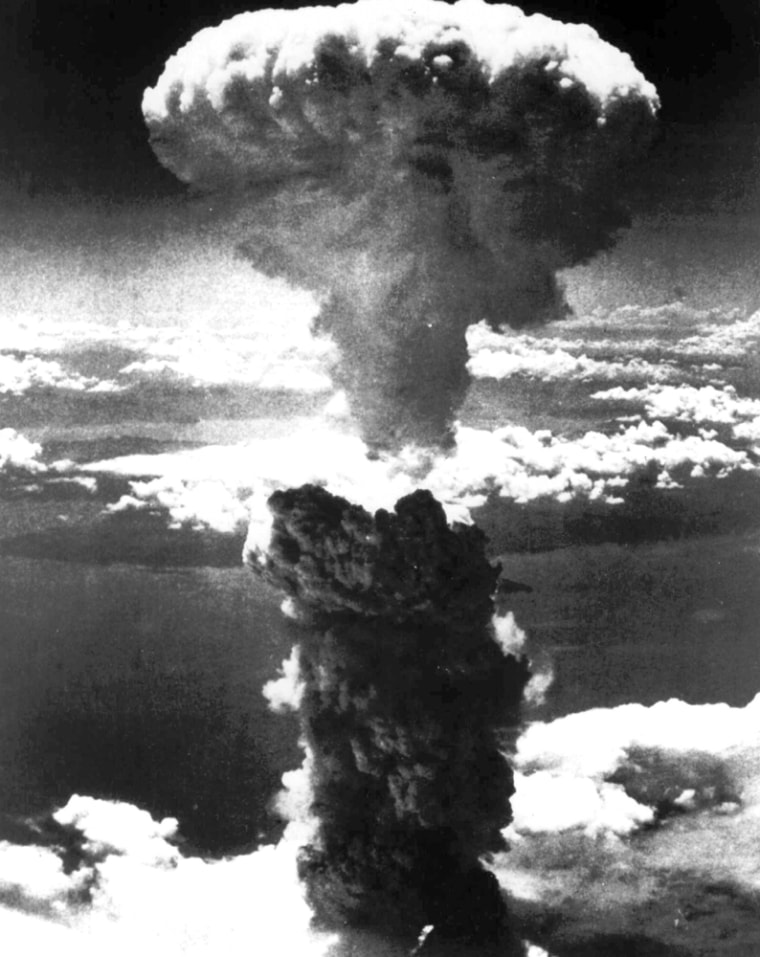Kazuko Yamashita was 5 when the atom bomb was dropped on Nagasaki, destroying her home in a second and leaving her with a lifelong fear that every time she becomes ill, this time it is finally cancer.
Now, 66 years later, she wears a dark pink sweater, her dyed hair in a neat bob, and waits out Japan's current nuclear crisis in her daughter's Tokyo home, a two-story house she also shares with her two granddaughters who play on a sofa behind her.
"I may be a bit too callous about this due to the fact that I was really heavily exposed to radiation, but I don't think this is anything to turn pale over," she told Reuters.
"People seem to be much too sensitive, though of course it's not really for me to say, and heavy radiation exposure is a serious thing. But I was 3.6 km (2.2 miles) from the bomb, and they've evacuated for 20 km (around the stricken nuclear plant). I really don't understand this kind of feeling."
Almost a week since massive earthquake and tsunami triggered the crisis at the Fukushima Dai-ichi power plant, 150 miles north of Tokyo, many foreigners and tourists have fled the country and rolling blackouts and radiation fears have gripped the capital.
Worries about grandchildren
Yamashita said she was not taking the situation lightly, even if she laments conflicting, overly alarmist news coverage.
"I can't say I'm not concerned, but I can't say I'm all that nervous," she said. "What I really worry about is my grandchildren. They're still so young."
Yamashita suffers from diabetes, thyroid issues and osteoporosis, which she attributes to the atom bomb that fell on her native city at the end of World War II.
"Radiation is something you only see the results of years down the road, so in that sense it's quite frightening," she said.
On that hot summer day in 1945, Yamashita was shielded from the worst of the destruction by a heavy quilt thrown over her as the bomb exploded.
"I didn't see a thing, but the noise was incredible — the sound of glass flying around, and so many other things. Then when I got up a few minutes later, everything had changed. There was nothing left of the house but the supporting pillars, and the world around us was red," she said.
"Now everybody's making such a fuss about the reactors in Fukushima. But it's nothing like that," she added.
Perhaps due to her mother's influence, her daughter, Shigeko Hara, is also quite stoic — even though she too suffers from a thyroid disorder typical of the children of atom bomb survivors.
"How safe is it really? That depends on the wind and what happens, and since I have children it is pretty scary," the 39-year old said as she sipped green tea in her living room.
"But it's also really scary that the location of strong earthquakes seems to be changing. So many places are being hit, you have no idea where's next," she added.
"I wear athletic shoes everywhere these days, even to work, because I never know what will happen and want to be ready for anything," Hara said.
Disaster backpack
Like many Tokyo residents, she has a backpack at hand for disasters filled with work gloves, socks, shoes heavy enough to walk over glass, as well as aspirin and sticking plasters.
But she also confessed that her emergency food was far past its expiry dates. A carton of mineral water and bag filled with cup noodles and snacks stood close by, ready to be added.
After the quake, she went to buy food and was shocked to see store shelves had been emptied of bread, milk and rice balls.
She was able to buy milk on Wednesday after standing in a long line, but that was the first time in two days her daughters, 7-year-old Akari and 11-year-old Yuka, had any milk to drink.
The family is limiting its electricity use as much as possible, responding to official calls to conserve power, shivering at night under extra sweaters in Tokyo's unseasonable cold.
She would like to dry her washing outside, but concerns about radiation have her hanging it inside instead.
Still, both she and her mother say their problems are small in the face of the hardships in the tsunami-hit areas.
"I called a childhood friend who lives up near the reactor and said to her, 'We went through a lot more than this in the past," Yamashita said.
"Japanese people are strong, and good at enduring."
